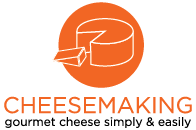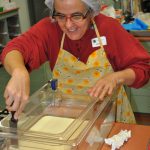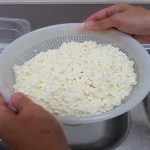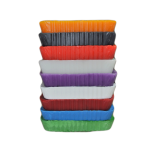What is marinated cheese?
The naming of these style of cheese can be quite ambiguous, it can be called Goats Feta, Persian Feta, Marinated Feta, Gourmet Feta, Greek Feta in Oil, or any mixture of these words. For this article, we will call it marinated cheese. Marinating cheese is becoming a very common style cheese. Typically, the cheese is added to a jar with oil plus some herbs and then stored in the fridge. The cheese component does not usually require complex cheeses, the product relies heavily on the oil and herb marinate to create a very nice flavoursome product.
But there are some misconceptions around the manufacture of a marinated cheese. There are several points that you should understand if you are making a marinated cheese. Here is some information on some of the variables used to make this cheese:
Food Spoilage v’s Food Poisoning
Food poisoning and spoilage are two different things, which affect the final quality of the foods we eat. Food spoilage refers to spoiled food, which is unfit for consumption eg it has gone mouldy, curdled, smells foul, is rotten etc… While food spoilage often there are tell-tale signs that it is spoiled so it is discarded before being eaten.
Food poisoning refers to the condition affecting a person’s health due to consumption of spoilt or contaminated food. Symptoms include diarrhoea, vomiting, nausea, headaches, cramps in the stomach and in extreme cases hospitalization and even death. Unfortunately, food poisoning usually does not have tell-tale signs in the food. You cannot smell, taste, or see food poisoning.
The equipment and the process
Make sure that all your equipment is well sanitised. This is the same for all your cheese making, that should not change between different cheese. But some specifics for the marinating step includes cutting boards, knives, jars, lids etc, that will eventually come into contact with either the cheese, the oil or the herbs. All equipment should be thoroughly washed then sanitised. Sanitising can be achieved by a chemical sanitise or by a very hot water sanitise.
The cheese
The cheese can be rennet set or acid set. Marinated cheese is often a fresh lactic acid set cheese. It has a low volume of rennet compared to many cheese, it is incubated with a mesophilic culture at ambient temperature for upwards of 16 hours. Some cheese is drained in a cloth/bag and reformed in hoops and some cheese is added straight into hoops and then straight into the oil marinate. The endpoint of incubation is the key to safety for this cheese. A minimum pH of 4.6 is required for all cheese to be marinated, this is the point the liquid milk sets into an acid curd. The cheese is quite acidic at this point, it is much like the pH of yoghurt. If all the correct hygiene practices have been followed up to this point, a pH of 4.6 for the cheese, excluding the herbs and oil, should not allow the growth of food poisoning bacteria within the cheese itself. Simply the cheese will not support food poisoning.
The herbs
There are many options for the herbs that you can use to flavour your oil. Thyme, rosemary, bay leaves, dried chilis, peppercorns, citrus zest… The list goes on. But how you obtain and treat those herbs is important. Do they come fresh from your garden, fresh from the supermarket, or do you obtain prepackaged from the supermarket? Some herbs and spices imported into Australia are treated with ethyleneoxide (EtOH) to control microbial contamination and this makes them safe. So, shop purchased dry packaged herbs may be considered free of food poisoning bacteria. But fresh herbs cannot be considered this way. It is this step, the addition of herbs, that is the weakest link in keeping marinated feta free of poisoning bacteria. The following link: https://www.fda.gov/Food/GuidanceRegulation/GuidanceDocumentsRegulatoryInformation/ProducePlantProducts/ucm337088.htm provides a very comprehensive document for the treatment of fresh herbs. It is nearly 200 pages and covers the best practices for processing of fresh culinary herbs, everything from growing, picking, transportation, washing, storage etc It is a very comprehensive document.
If there are best practice guidelines for commercial operations that are very comprehensive and aimed at significantly reducing the risk of food poisoning, it is conceivable that cheesemakers may not have the means available to follow all these guidelines when adding fresh herbs to a cheese or oil. Fresh herbs are desirable because they have the colour, flavour and are more attractive to use than dried herbs. But fresh herbs can significantly increase the risk of food poisoning. So how can you make fresh herbs safe? The simple answer is you cannot. However, this is how I go about this process. Please note I am offering this as my personal method of sanitising the fresh herbs and in no way am I advocating this process to you. This process has not been validated scientifically to ensure it reduces the risk of food poisoning.
- Make sure herbs are picked fresh
- Cut off any stems, seeds, extra leaves, and unwanted parts around the herbs with sharp scissors (do not tear off pieces)
- Wash the herbs very thoroughly under running tap water for a few minutes
- Place the herbs into a cup with a mixture of 50 vinegar: 50 boiled cooled water for 2 minutes. This solution has a pH of around 2.6. I like to move the herbs around a little with a fork just to make sure that the sanitising solution has good coverage over the herbs.
- Place the herbs into a cup of boiled but cold water for 5 minutes to remove any acetic acid from the surface of the herbs
- Place the herbs on a clean and sanitised rack in a clean and sanitised plastic container to air dry
- When dry they can be added to the cheese and oil mixture
The oils
Only the freshest oil should be used for marinating. The oils added to the cheese vary in flavour from canola, macadamia, rice bran. Basically, you can use what oil you like. Olive oil is a great oil, but it solidifies at fridge temperatures, so it is not commonly used. The fresh lactic cheese also has a light delicate flavour and the olive oil tends to dominate the fresh cheese flavour. Oil has been used for thousands of years as a preservative, keeping foods from oxidising and desiccating. When olive oil is old, it oxidises and becomes rancid. That’s food spoilage.
There is no pH value of oil because it doesn’t have one! pH is a measure of the hydrogen ion concentration in an aqueous solution(water). Because there is no water in oil, there is no pH value. Most bacteria can not grow in the oil itself, garlic is an exception (see garlic below), they require a watery medium. Additives such as cheese and herbs will, however, supply that watery medium that is important for microbial growth.
Importantly oil provides an anaerobic environment, it has no oxygen to support the growth of many different types of bacteria. But there are still certain types of microbes, that will grow in anaerobic conditions. This means that oil can create an environment that will support bacterial growth. Some of the bacteria capable of growing in this environment are capable of very severe food poisoning. Thus, the refrigeration of a marinated oil/cheese/herbs mix is vital. The aim of refrigeration is to create a hurdle to the potential growth of any food poisoning bacteria that may be present.
Botulism: Garlic in oil
Garlic, onions, shallots, and leeks are grown under the ground and consist of pungent flavoured bulbs called cloves. In the ground where these bulbs are grown, some of the most dangerous pathogenic microbes also reside. Regardless of its pungent flavour garlic is a low acid vegetable. Garlic has a pH of around 5.3 to 6.3. It is often incorrectly categorized as having antibacterial qualities. As with all low acid vegetables, garlic will support the growth of Clostridium botulinumand if, given the right conditions, garlic will support the production of a toxin from this bacterium called Botulism, it is the most severe neurotoxin available. It can cause paralysis or even death. It’s is my understanding that Clostridiumbotulinumcells from the soil can become encased within the garlic as it grows. Sanitising the surface of the garlic or removing the shell of the garlic will not necessarily remove all the live bacteria. The Clostridium botulinum spores and the Botulism toxin can also survive a heat treatment far greater than what milk pasteurisation will provide.
Oil in a jar is exactly the type of environment that Clostridium botulinumcan grow in, it is a low oxygen or totally depleted of oxygen environment. If you add garlic to that oil, you are potentially adding Clostridium botulinumto the oil. Roasted garlic may offer some protection, but it is also my understanding that even the roasting may not kill off the spores. Clostridium botulinumwill not grow in the actual cheese if it is pH below 4.6, or in the fridge below 4°C, so the cheese for marinating should be below pH 4.6 and refrigerated. But the safest strategy is simply don’t add garlic, raw or roasted to oil.



